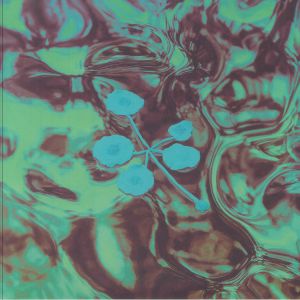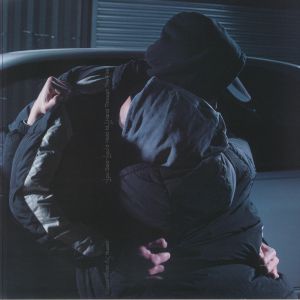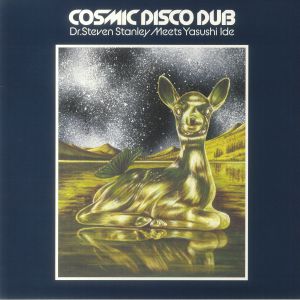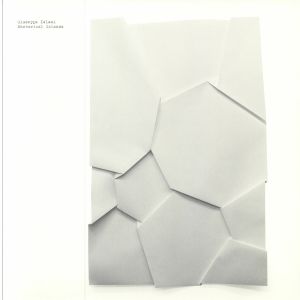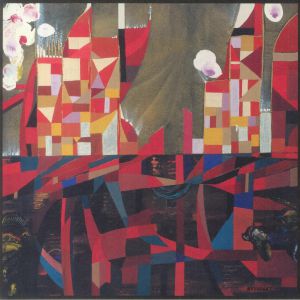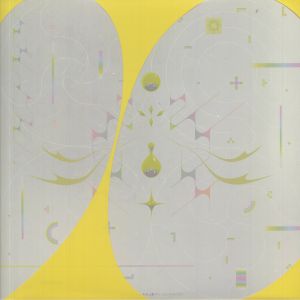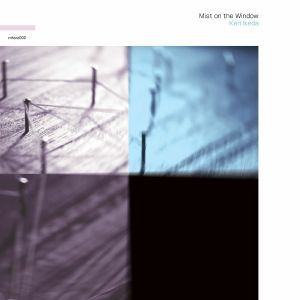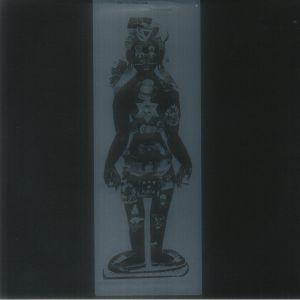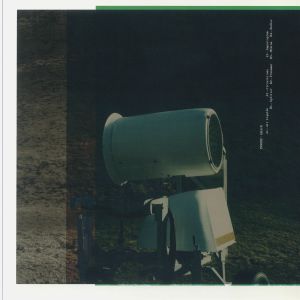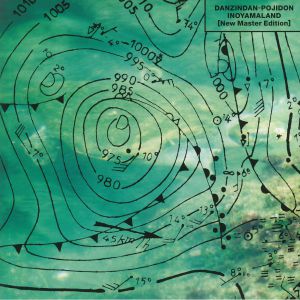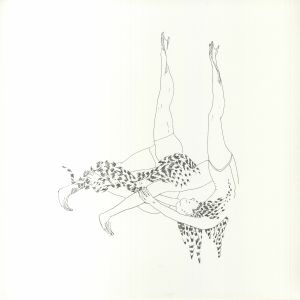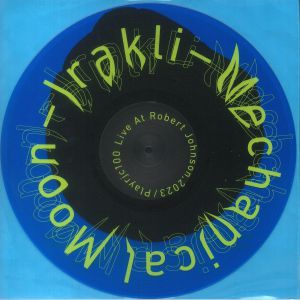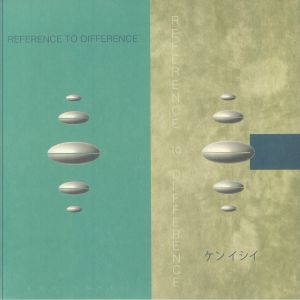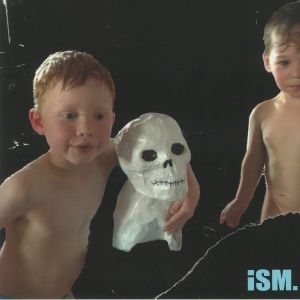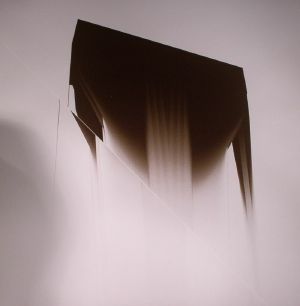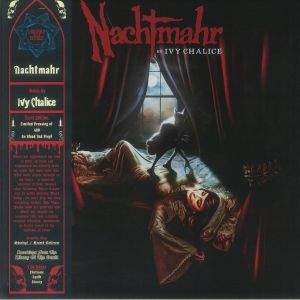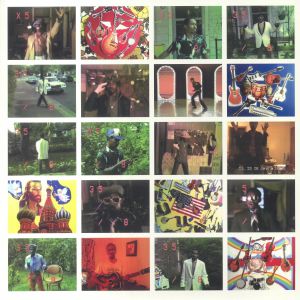Filter
Stock
Type
Music
Format
Artist
Label
Featured
Release Title
Price
Tags
Back catalogue: Experimental/Electronic
Juno's full catalogue of Experimental/Electronic
Albums
An Ever Growing Meridional Entertainment Transgression At The Edge Of The Multiverse (LP in spot-varnished sleeve)
Cat: NOT 076. Rel: 29 Nov 24
in stock $25.05
You Said You'd Hold My Hand Through The Fire (LP + MP3 download code)
Cat: HDBLP 067. Rel: 06 Jun 24
Review: Spanish producer Nueen and Manchester vocalist and rapper Iceboy Violet, who you might well recognised from appearing on Hyperdub releases by the likes of aya and Loraine James, come together for a collaborative work that follows the story of a four-year-long relationship. As you can imagine, therefore, it takes in peaks and troughs, emotional highs, depressive lows, and plenty in between that will all feel all too familiar to anyone who has ever fallen in and out of love. Drill-laced beats are laced with intimate melodies, and excitable chords spiral out of control while a menacing ambience percolates up from below. It's a powerful listen with a relatable narrative.
… Read morePlayed by: Juno Recommends Hip Hop/R&B
in stock $21.95
in stock $20.02
in stock $28.42
Review: Last year Japanese street musician Yasushi Ide released Cosmic Suite 2 -New Beginning- to widespread acclaim, garnering plenty of attention thanks to the heavyweight cast of collaborators from Afrika Bambaataa,ADon Letts andAJeff Mills toADJ Krush andATony Allen. Now he's reached out to Grammy-winning sound engineer Steven Stanley to bring a heavyweight, premium grade dub treatment to the original album, and the results are astounding. The source material was eclectic to start with, which gives Stanley a wide scope to bring his own precision dubbing onto a wide variety of moods. Listen out for legendary drummer Style Scott laying down the beats under DJ Krush's cuts on 'Outer Space Dub' and lose yourself in the spiralling boom bap of Bambatta's appearance 'I'm Thinking, I'm Spacing Dub'.
… Read more in stock $26.73
in stock $26.73
in stock $32.37
Rhetorical Islands (LP + MP3 download code)
Cat: FAIT 35LP. Rel: 20 Mar 24
Review: .Rhetorical Islands was originally pieced together from Giuseppe Ielasi's work for l'Audible Festival in Paris. An event dedicated to pushing forward thinking, mind-expanding, experimental and just plain strange sounds, his efforts certainly fit in with all of those terms. Presented here as ten standalone tracks, all without name and many without the usual elements we expect from a 'track', this first vinyl pressing of the work is really an extension of the original idea, rather than a time capsule of it. "Isolated sound worlds" is the phrase Ielasi used to describe what's happening here, and it's certainly true that the individual parts stand alone and can each be heard as autonomous. But together they also make a strange kind of sense, complementing, almost feeding into each other, even at the most stark juxtaposition. Ultimately, then, it's about interpretation, making what we choose from the ingredients.
… Read more in stock $29.26
Review: To date Wata Igarashi has released most of his work as singles. The Japanese techno producer has steadily risen in profile thanks to releases for the likes of The Bunker New York, Nidgar, Bitta and Delsin, but now his trajectory shifts into a different gear as he offers up his first fully-fledged artist album outside of Japan for the mighty Kompakt. It's clear from the offset he's relished the opportunity to stretch out on an album and we're treated to some stunningly rendered ambient and downtempo soundscapes - just listen to the slow rise and fall of 'Searching' and you'll be instantly sold. There's space for drama and accomplished composition as on 'Ceremony Of The Dead', jazzy exploits on 'Burning' and much more besides, showcasing the unbridled imagination of one of Japan's brightest talents.
… Read morePlayed by: Juno Recommends Ambient/Drone
in stock $28.14
Lei Line Eon (gatefold transparent yellow marbled vinyl 2xLP)
Cat: GLOO 007. Rel: 04 Jun 21
Review: Dorset laptop head Iglooghost, AKA Seamus Malliagh, certainly knows how to paint a vivid picture - aurally and visually. 2017's startlingly original debut, Neo Wax Bloom, was like stepping through a vortex into another world entirely. A rich and deep universe that felt as though it had been there for aeons, waiting for us to stumble on a branch in the forest and fall headfirst through the wardrobe.
Lei Line Eon extends that realm significantly, building on past musical frameworks to deliver something that is at once bolder and bigger, but calmer and more serene. As though we have done with the immediately overwhelming experience of being taken somewhere Definitely Not Of This Plane, and found ourselves on a mountain side taking in this new place from a much broader perspective. Comparisons to Boards of Canada still apply, but with this latest Iglooghost reaffirms he's really all about the originality.
… Read moreLei Line Eon extends that realm significantly, building on past musical frameworks to deliver something that is at once bolder and bigger, but calmer and more serene. As though we have done with the immediately overwhelming experience of being taken somewhere Definitely Not Of This Plane, and found ourselves on a mountain side taking in this new place from a much broader perspective. Comparisons to Boards of Canada still apply, but with this latest Iglooghost reaffirms he's really all about the originality.
in stock $38.84
in stock $25.88
Nuit Blanche (clear vinyl LP limited to 100 copies)
Cat: LR 003. Rel: 20 Dec 24
in stock $25.88
in stock $25.05
Cat: PHNTM 50. Rel: 17 Apr 25
A City Drowning. God's Black Tears (feat The Lil Black Oxen, Emile Joseph Weeks & Nicolas Ratany) (4:18)
Two Headed Buffalo (feat The Lil Black Oxen, Boat Water, Randi Whithani, Marci Ray, Natalia De Oliveira) (3:52)
in stock $24.76
in stock $33.49
Danzindan Pojidon: New Master Edition (reissue) (LP + insert in spot-varnished sleeve)
Cat: WRWTFWW 040. Rel: 25 Mar 20
Review: Japanese duo Inoyama Land's "Danzindan-Pojidon" is a cult experimental ambient classic from 1983. It has been reissued a number of times but always sells out fast, and for good reason: it's a beautifully crepuscular, pastoral musical landscape with sustained minimal synths hypnotising you with delicate keys bringing oriental flavours to gently propulsive ambience. It's organic, environmental and new age music with none of the cliches and will bring a smile to you face as well as warmth to your heart. "Glass Chime" is a particularly standout track of real melodic joy, while "Mizue" is gorgeously melancholic.
… Read more in stock $30.68
Calisthenics (LP + MP3 download code)
Cat: 010628978. Rel: 15 Mar 23
in stock $21.38
Mechanical Moon (coloured vinyl LP + MP3 download code)
Cat: PLAYRJC 100. Rel: 21 Sep 23
Played by: Rave Energy
in stock $36.58
Review: Prolific experimental musician Eiko Ishibashi and filmmaker Ryusuke Hamaguchi follow up their for-the-ages 2021 collaboration for the latter's film adaptation of Drive My Car, with a slick and bold proclamation in jazz, electronica and improv: Evil Does Not Exist. Indeed, only the enlightened among us know that the ills of the world largely boil down to misunderstandings - oversights contra insights - thereby rendering any recourse to real malice by bad actors null, even when they themselves think it true. Evil Does Not Exist once more appears as both an album and film; the former artist's soundtrack here is as sublime as the realisation itself, combining dense copses of brass and freeform drumming to produce a euphoric miasma.
… Read more in stock $27.87
Reference To Difference (30th Anniversary Edition) (gatefold LP)
Cat: MMDS 24003LP. Rel: 11 Sep 24
Review: Ken Ishii's 1994 album, Reference to Difference, is a crucial, yet often overlooked, masterpiece in the world of techno, ambient and electronic music from Japan. Celebrating the 30th anniversary of Musicmine Records, this album is now reissued and remastered, available on vinyl with its original track-list for the first time. Born in 1970 in Sapporo, Ishii's journey into electronic music began with arcade games and pioneers like Yellow Magic Orchestra and Kraftwerk. The discovery of Detroit techno in the late 80s shaped his artistic vision, blending with influences from British and American IDM and ambient techno. Reference To Difference is a futuristic blend of ambient atmospheres, techno rhythms, and minimalist compositions. It transports listeners back to the mid-1990s, a golden era for Japan's unique techno culture. This era saw Tokyo's clubs like Maniac Love becoming essential hubs for the underground scene, where Ishii and peers like Susumu Yokota thrived. Ishii and Yokota set benchmarks for Japanese techno with their early works. Ishii's Reference to Difference and Yokota's Acid Mt. Fuji, released simultaneously on June 29, 1994, were pivotal in putting Japan on the global techno map. Martyn Pepperell's new liner notes accompany this reissue, shedding light on Ishii's influence and the album's significance. Rediscover this gem and experience a landmark moment in electronic music history.
… Read morePlayed by: Juno Recommends Techno
in stock $25.05
in stock $30.68
Review: Planet Mu usher in the return of Ital Tek and a new sonic approach for the long-term label associate, as Hollowed finds Alan Myson switching up his approach. The chance to immerse himself in a new studio set up was the impetus for Myson to engage in laying down countless hours' worth of loops, drones and textures. It is apparently a method he used as a teenager, but armed with years of recording experience he was now able to make the record he had then envisaged. Fans of the crisp style of dubstep Ital Tek made his name on might be a bit taken aback by this new direction, but there is plenty of fine music to explore here for those that like their sounds abstract and impressionistic.
… Read morePlayed by: Juno Recommends Experimental, LTO (Old Apparatus)
in stock $12.94
Review: Alan Myson returns once more as Ital Tek, continuing a not-so-well-cited yet important sound. There's never been much of a name for it, maybe thanks to its appearance in the meting-potty post-dubstep era - but Tek's is a sound of minimal aesthetics and glossy-wonky beats. Other artists might include Kuedo, Lorn or MssingNo (but it's not wave, witch house or purple). Genre-mindedness aside, Timeproof is Myson's fifth album for Planet Mu, following 2020's Outland for a long meander through the fluid timey-wimey nature of time, and how it varies depending on its perceiver(s)' mental states. Beaty sublimers like 'Phantom Pain' and 'One Eye Open' make this a staggering time-dilating journey, one whose appeal, true to its name, will surely last for electronic music fans decades into the future.
… Read more in stock $22.51
Nachtmahr (limited numbered translucent blood red vinyl LP with obi-strip)
Cat: LOTO 031. Rel: 13 Sep 23
in stock $30.11
The Acid Lands (gatefold LP)
Cat: SRV 500. Rel: 13 Nov 20
in stock $21.67
Anima Aeterna (LP)
Cat: 019029 6743863. Rel: 05 Nov 21
in stock $15.75
Review: A record unlike any other, 'Is That What You Want' is a fascinating slice of what some might call 'outsider soul', but even that label can't do full justice to the music here. Part of a wholly unrecognised community of DIY musicians living in East Philadelphia in the 1980s, Lee Tracy and Isaac Manning were a vocal, instrumental and production duo whose efforts flew sorely under the radar at the time that they laid these slick slices of experimental joy to tape. Bleeding a shocking transfusion of gospel, electro, lo-fi, funk and soul, this is a worthy slice of Afrofuturism existing outside the jazz connotation. "We never went to no studio," retorts Manning, showing off the pair's homespun ingenuity. Bolstered by a slew of DIY videos shot in Lee's front garden, this has everything from black Southern IDM to machine-glitched proto-raps. It deserves all the recognition it can get.
… Read morePlayed by: Marco Gallerani, Ltj xperience
in stock $25.61

 USD
USD





